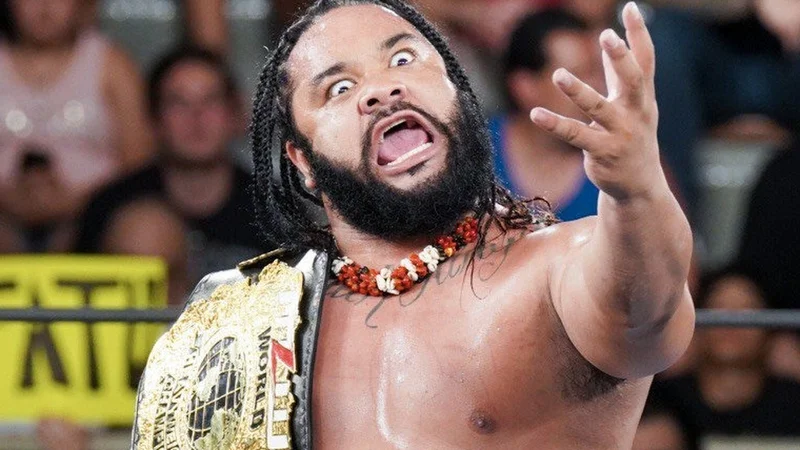So, the new golden boy of British tennis has a boo-boo.
Jacob Fearnley, the guy who was supposed to be the next big thing after a surprisingly decent 2025, is on the shelf. First, he bails on the Davis Cup, and now he’s pulling out of the Shanghai Masters. The official narrative is, of course, a vague, nondescript "injury." The same kind of injury that seems to plague every athlete the second the grind gets a little too real.
Let’s be honest. This is how the hype train starts to wobble. One minute you’re the toast of the town, cracking the top 50 and making third-round appearances at majors. The next, you’re another name on a withdrawal list, replaced by some guy named Adam Walton who’s been grinding it out on the Challenger circuit. The machine doesn’t stop for anyone.
The Breakout Year That Broke
I’ll give the kid his due. Fearnley's rise this year was impressive. Beating guys like Bautista Agut and Cobolli isn’t nothing. He looked like he had the goods. For a minute there, the British press had finally found someone to obsess over besides the usual suspects. He was the shiny new toy, the rocket ship blasting off. But every rocket ship is just a controlled explosion, and eventually, the fuel runs out or a gasket blows. In sports, the human body is the ultimate gasket. It always, always blows.
The problem isn't that he's injured. The problem is the silence. We get these sterile announcements, these PR-approved statements that say absolutely nothing, like the recent report that Jacob Fearnley drops out of another key tournament following Davis Cup withdrawal. What is the injury? A wrist? An ankle? A bad case of "I've-played-too-much-damn-tennis-this-year"? The vagueness is almost more insulting than the withdrawal itself. It’s like they think the fans are idiots who will just nod along to whatever crumbs of information they’re fed.
It’s the same playbook every time. A player hits a hot streak, the expectations pile up, the travel schedule becomes relentless, and then—poof. They vanish. Are we supposed to believe this is just a coincidence? Or is "injury" the only acceptable excuse in a sports culture that treats exhaustion and mental burnout as signs of weakness? I have to wonder, what are they really hiding when they refuse to give a straight answer?

This is a bad look. No, 'bad' doesn't cover it—this is a five-alarm dumpster fire for a career that was just starting to catch. You finally get the world’s attention, and then you have to retreat into the shadows while the tour marches on without you. Momentum in sports is a fragile, fickle beast, and letting it go is a dangerous game.
The Tennis Machine Demands a Sacrifice
And offcourse, Fearnley isn't the only one jumping ship. The Shanghai Masters withdrawal list reads like a who's who of guys who are tired, hurting, or just plain over it. Monfils, Dimitrov, Tommy Paul—all citing injuries from the hard court swing. You see a pattern here? The tour grinds these guys down to a fine powder. They play on unforgiving concrete surfaces for months, jet-lagged and living out of suitcases, and we act surprised when their bodies start to fall apart.
It’s a meat grinder, plain and simple. The ATP Tour is a product, and the players are the raw material. It needs bodies on the court in Shanghai to sell tickets and satisfy broadcast partners. If a top-50 guy from Britain can’t make it, the machine just slots in the World No. 75 from Australia. Next man up. Don't let the door hit you on the way out. There's a certain brutality to it that we all just seem to accept.
I sometimes think about my own job, staring at this screen until my eyes burn, and then I remember these guys are literally destroying their joints for our entertainment. And for what? For a shot at a title in a tournament that half the big names are skipping anyway? It's a bizarre transaction when you really stop to think about it. The whole system feels... unsustainable.
The real test for Fearnley won't be his first match back at some big-name tournament. The real `jacob fearnley prediction` isn't about whether he'll win a Slam. It's about whether he can survive the comeback. I’m picturing some cold, half-empty indoor arena in Stockholm or Antwerp in a few months. The only sound is the flat, echoing thwack of the ball and the squeak of his shoes on the court. That’s where you find out if you still have it. A quiet Tuesday afternoon match, a `jacob fearnley vs elias ymer` type of showdown, with no glory and everything to lose. Can he find the fire again when nobody’s watching?
Welcome to the Grind, Kid
The breakout year was the fun part. The magazine covers, the surprising wins, the feeling of invincibility—that's the sizzle. This is the steak. This is the part where you learn that professional tennis isn't a meritocracy; it's a war of attrition. The hype is officially over. Now we find out if Jacob Fearnley is just another flash in the pan or a guy who can actually handle the soul-crushing reality of the pro tour. My money's on a tough road ahead.
